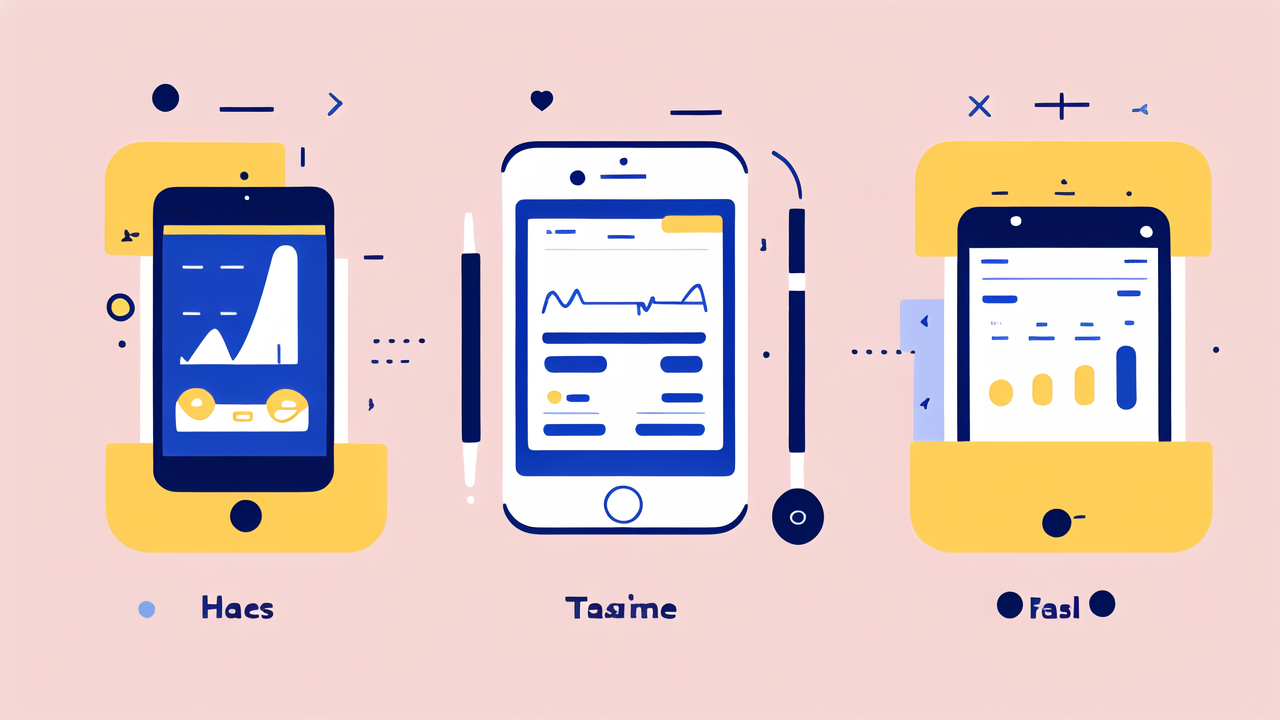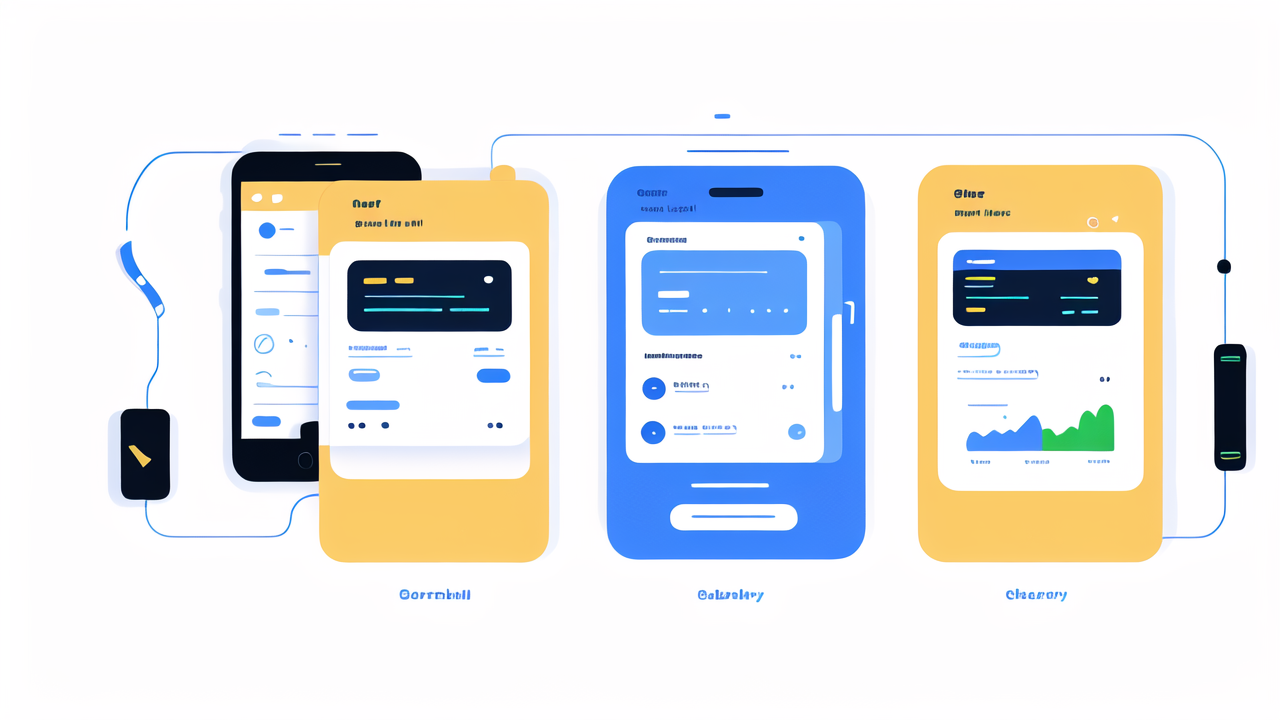Understanding the Basics of Smart Bracelets
The Evolution of Smart Bracelets in Fitness Technology
Smart bracelets have come a long way since their inception. They started as simple step counters. Now, they're advanced fitness tools. Early models only tracked steps and sleep. Today's smart bracelets do much more.

They monitor heart rate, stress levels, and even blood oxygen. Some can track specific workouts. Others offer GPS for outdoor activities. The evolution has been rapid and impressive.
Smart bracelets now integrate with smartphones and fitness apps. This allows for more detailed data analysis. Users can set goals and track progress over time. The technology continues to improve, offering more features and accuracy.
Key Features of Smart Bracelets for Fitness
Modern smart bracelets pack a punch when it comes to features. Here are some key functions to look for:
- Heart rate monitoring
- Step counting
- Sleep tracking
- Workout modes
- GPS tracking
- Water resistance
- Smartphone notifications
- Long battery life
Some advanced models offer even more. These may include stress monitoring, blood oxygen tracking, and ECG. The best smart bracelets balance features with ease of use. They provide valuable insights without overwhelming the user.
The Importance of Wrist-Based Fitness Tracking
Wrist-based fitness tracking has revolutionized personal health monitoring. It offers convenience and constant data collection. Users can track their activity levels throughout the day. This ongoing monitoring provides a more complete picture of one's health.
Smart bracelets encourage users to move more. They offer reminders and set daily goals. This can lead to healthier habits and improved fitness. The data collected can also be shared with healthcare providers. This allows for better-informed medical decisions.
Wrist-based tracking is less intrusive than other methods. It's comfortable and can be worn all day. This leads to more consistent use and better data collection.
Comparing the Top Smart Bracelets in the Market
Analyzing User-Friendliness and Design
When choosing a smart bracelet, user-friendliness is key. A good device should be easy to set up and use. The interface should be intuitive, with clear menus and options.

Design is also important. A smart bracelet should be comfortable to wear all day. It should be lightweight and not interfere with daily activities. The display should be easy to read, even in bright sunlight.
Some bracelets offer customizable watch faces. This allows users to personalize their device. Others have interchangeable bands for different styles. The best designs balance functionality with aesthetics.
Performance Metrics: Accuracy and Battery Life
Accuracy is crucial for any fitness tracking device. A good smart bracelet should provide reliable data. This includes step counts, heart rate measurements, and sleep tracking. Some devices are more accurate than others. It's worth reading reviews and comparing accuracy ratings.
Battery life is another important factor. A smart bracelet should last at least a few days on a single charge. Some models can last a week or more. Longer battery life means less frequent charging. This leads to more consistent use and better data collection.
Consider how the device charges. Some use proprietary chargers, while others use standard USB. Wireless charging is becoming more common in high-end models.
Ecosystem and Compatibility with Fitness Apps
A smart bracelet's value increases with its ecosystem. Many devices work with popular fitness apps. This allows for more detailed data analysis and goal setting. Some common compatible apps include:
- MyFitnessPal
- Strava
- Apple Health
- Google Fit
Consider which apps you already use. Choose a bracelet that integrates well with your existing setup. Some brands have their own fitness platforms. These can offer additional features and insights.
Compatibility with your smartphone is also important. Most smart bracelets work with both iOS and Android. However, some features may be limited on certain platforms. Check the compatibility before making a purchase.
Purchasing Tips for Smart Bracelets
Evaluating Cost vs. Value
Smart bracelets come in a wide range of prices. It's important to balance cost with features. Cheaper models may offer basic tracking. More expensive ones provide advanced features and better build quality.

Consider your fitness goals when evaluating value. If you're a casual user, a basic model may suffice. Serious athletes might benefit from more advanced features. Think about which features you'll actually use.
Remember, the most expensive option isn't always the best. Look for a bracelet that offers the features you need at a reasonable price. Sometimes, mid-range models offer the best balance of cost and functionality.
Understanding Warranty and Customer Service
A good warranty can protect your investment. Most smart bracelets come with a one-year warranty. Some offer extended coverage for an additional fee. Read the warranty terms carefully. Understand what's covered and what's not.
Customer service is also important. Look for brands with a reputation for good support. This can be crucial if you have issues with your device. Check online reviews to see how the company handles customer problems.
Some brands offer online tutorials and community forums. These can be helpful for troubleshooting and getting the most out of your device.
The Future of Fitness Wearables: What to Consider Before Buying
The world of fitness wearables is constantly evolving. New features and technologies emerge regularly. When buying a smart bracelet, consider its future-proofing. Look for devices that receive regular software updates. This can add new features and improve performance over time.
Consider emerging trends in fitness tracking. These might include:
- Advanced health monitoring (like blood pressure or glucose levels)
- AI-powered coaching and insights
- Integration with smart home devices
- Improved battery technology
While you can't predict the future, choosing a device from a reputable brand can help. These companies are more likely to stay current with new technologies. They may also offer trade-in programs for newer models.
Remember, the best smart bracelet is one that fits your needs and lifestyle. Consider your fitness goals, budget, and preferred features. With the right choice, a smart bracelet can be a valuable tool in your fitness journey.




Leave a comment
This site is protected by hCaptcha and the hCaptcha Privacy Policy and Terms of Service apply.